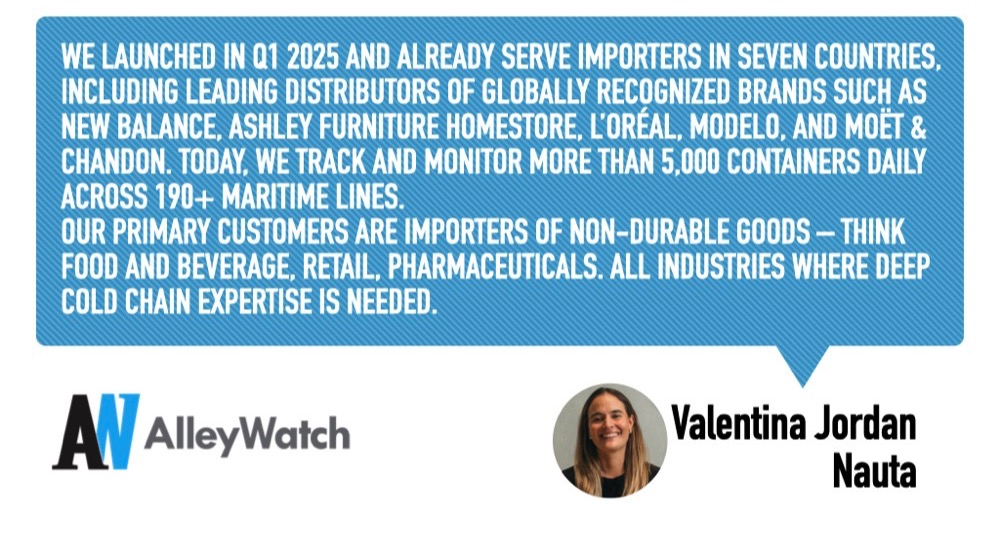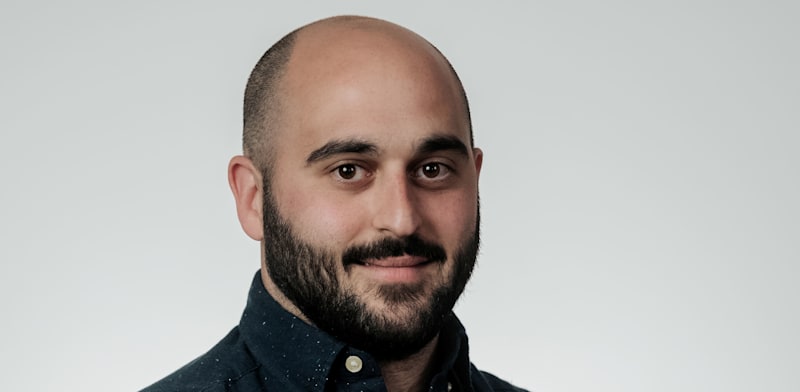Global logistics faces unprecedented complexity as U.S. trade in goods surpasses $5.3T annually, with imports from Asia and Latin America alone exceeding $2.3T. Despite this massive scale, most importers still rely on emails, spreadsheets, and fragmented legacy systems to manage intermodal shipments at the container level, leaving operators fighting fires with limited tools under extreme pressure. Nauta addresses this challenge with an AI-powered logistics orchestration platform that gives importers a single source of truth and control center for their global operations. The platform harmonizes data from emails, documents, and systems into actionable insights, enabling operators to reduce detention costs by up to 80%, increase productivity by 30%, and improve container processing times by 75%. Since launching in Q1 2025, the company serves importers across seven countries, working with leading distributors of globally-recognized brands including New Balance, Ashley Furniture HomeStore, L’Oréal, Modelo, and Moët & Chandon.
AlleyWatch sat down with Nauta CEO and Cofounder Valentina Jordan to learn more about the business, its future plans, recent funding round, and much, much more…
Who were your investors and how much did you raise?
We raised a $7M seed round led by Construct Capital and Predictive. Camila Key Saruhashi of Construct Capital, who brings deep supply chain expertise, led the round.
Tell us about the product or service that Nauta offers.
Nauta is the AI-powered logistics orchestration platform for importers. We’re transforming global logistics by turning fragmented, hard-to-use data into actionable insights — starting with the operators who manage the movement of goods every day.
What inspired the start of Nauta?
It all starts with the operator’s experience. In logistics, every container tells a story, and no two journeys are alike. The people managing those journeys are juggling countless moving parts, often under extreme pressure, because profitability and customer satisfaction depend on their decisions. I’ve seen firsthand how much of their day is spent fighting fires with limited tools and fragmented data.
We started Nauta to change that. While we can’t stop external shocks like weather, tariffs, or geopolitical events, we can offer operators more control of what they can actually control. Nauta makes an operator’s own data actionable by unlocking the insights hidden in their inboxes, documents, and partner communications.
By using AI to structure information, we give importers control over their operations and the ability to manage cashflow with clarity where there was once chaos, ultimately building resilience and stronger margins.
How is Nauta different?
Nauta was purpose-built for importers. Despite trillions of dollars in goods moving each year, most importers still rely on emails, spreadsheets, and siloed legacy systems to manage global shipments, which leaves them without real control.
Nauta changes that. By serving as an AI-powered control center, we give importers a single source of truth and the ability to automate routine workflows. With flexible, agentic capabilities, Nauta helps operators act faster, grow margins, and build resilience in the face of growing global complexity.
What market does Nauta target and how big is it?
We launched in Q1 2025 and already serve importers in seven countries, including leading distributors of globally recognized brands such as New Balance, Ashley Furniture HomeStore, L’Oréal, Modelo, and Moët & Chandon. Today, we track and monitor more than 5,000 containers daily across 190+ maritime lines.
Our primary customers are importers of non-durable goods – think food and beverage, retail, pharmaceuticals. All industries where deep cold chain expertise is needed.

What’s your business model?
Nauta operates on a standard SaaS model.
How are you preparing for a potential economic slowdown?
We’re focused on growth. We’re signing major customers, expanding into new markets, and continuing to deliver against our ambitious product vision. By helping importers protect margins and gain control, we’re building a business that matters in any economic environment.
What was the funding process like?
For us, the funding process wasn’t just about raising capital; it was about finding the right partners. We prioritized investors who understood that logistics and trade are legacy industries in need of transformation, and who shared our long-term vision. That made the process less transactional and more about building lasting relationships. In the end, we were looking for capital and the people who could be true partners in the journey.
What are the biggest challenges that you faced while raising capital?
The biggest challenge was being disciplined in saying ‘no.’ When you’re raising, it’s tempting to take any interest that comes your way, but we stayed focused on finding the right partners who understood our space and believed in long-term value creation. That required patience and conviction, but it’s what ultimately gave us the investor group we wanted.
What factors about your business led your investors to write the check?
One of the reasons that Camila Key Saruhashi of Construct Capital, who has deep supply chain expertise, led the round in Nauta is because she views Nauta as a foundational company in the new logistics tech stack. This new “tech stack for global trade” is being shaped by a unique moment in time: rapidly advancing AI capabilities intersecting with complex trade dynamics, such as tariffs, regional conflicts, and inflation, that are set to transform global trade.
What are the milestones you plan to achieve in the next six months?
We’re focused on three priorities: expanding in the US, launching into new global markets, and hiring the best talent to help us scale.
What advice can you offer companies in New York that do not have a fresh injection of capital in the bank?
My advice would be to stay focused and not chase every shiny object that comes your way. Without fresh capital, it’s even more important to be creative and scrappy in how you build. Focus on solving one problem really well, and pour your energy into building amazing relationships with your first clients. If you truly deliver value for them, they’ll become your biggest promoters and, in many ways, your most effective sales team. Capital helps, but clarity, discipline, and customer advocacy can take you just as far in the early stages.
Where do you see the company going now over the near term?
As mentioned, we’re focused on three priorities over the next six months: expand in the US, launch into new global markets, and hire the best talent to achieve our mission.
What’s your favorite summer destination in and around the city?
If I’m in the city, Greenpoint in Brooklyn. Outside of the City is Hudson Valley.























